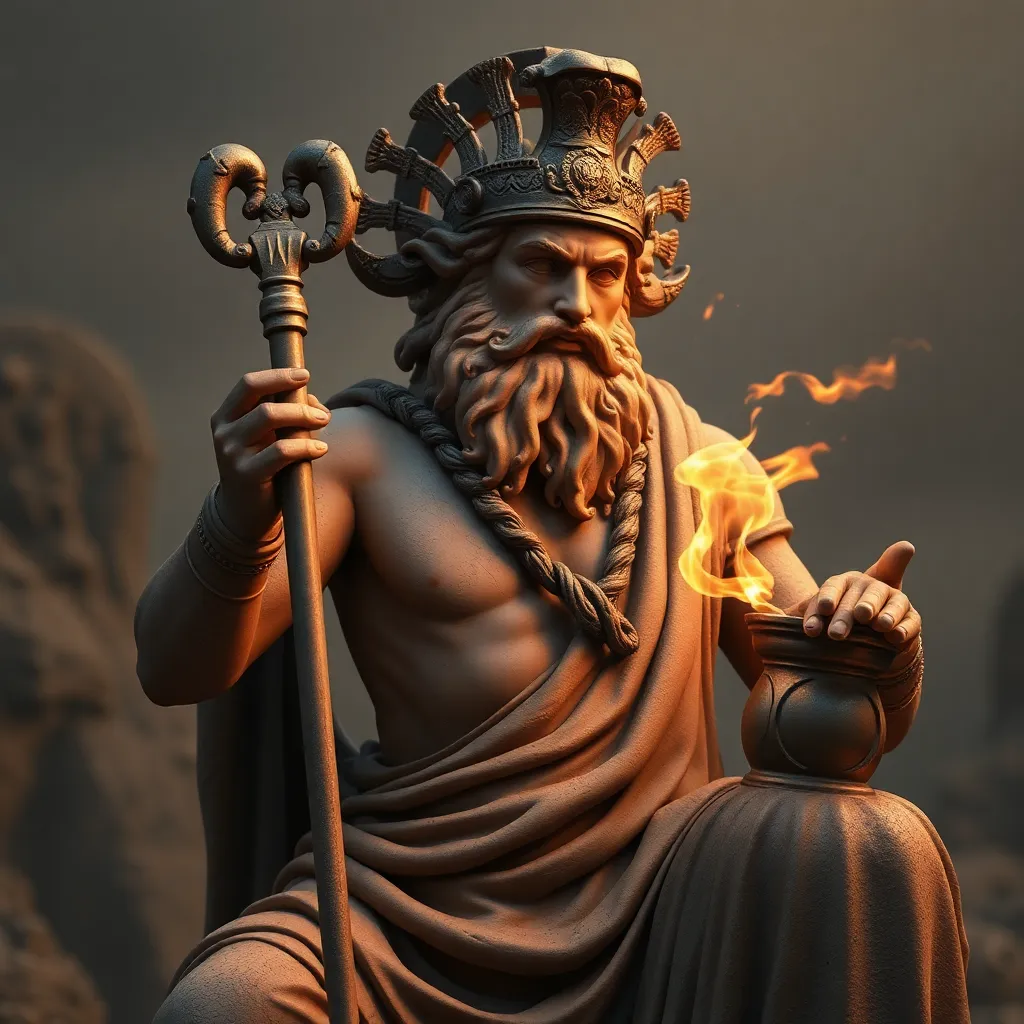Hephaestus in Greek Mythology: The Artisan God and His Creations
I. Introduction
Hephaestus, the god of fire and metalworking, holds a significant place in Greek mythology as the divine artisan. He represents the pinnacle of craftsmanship and artistry, embodying the skills that were highly valued in ancient Greece. This article aims to explore the origins, attributes, and remarkable creations of Hephaestus, shedding light on his essential role within the pantheon of Greek deities.
II. Origins of Hephaestus
Hephaestus is traditionally considered the son of Hera and Zeus, although some myths suggest he may have been born solely from Hera, without Zeus’s involvement. His birth is surrounded by various myths, with some portraying Hera as angry or embarrassed by his physical appearance, leading her to throw him from Mount Olympus.
Hephaestus is often depicted as having a disfigured body, which contrasts with the ideals of beauty associated with many other gods. This physical disability did not deter him, however, and he became known for his extraordinary skills in metalworking.
III. The Role of Hephaestus in the Pantheon
As the god of fire and metalworking, Hephaestus plays a crucial role among the Twelve Olympian gods. His expertise in crafting weapons, armor, and other artifacts made him an essential figure in many myths. He is often associated with other gods and goddesses, most notably:
- Aphrodite: His wife, known for her beauty and love.
- Ares: The god of war, who had an affair with Aphrodite.
Hephaestus’s relationships with these deities highlight his complexity within the divine hierarchy. Despite his physical shortcomings, he is revered for his ingenuity and craftsmanship.
IV. The Forge: Hephaestus’s Domain
Hephaestus’s forge, located on Mount Olympus, is a marvelous place where he creates his masterpieces. Descriptions of his forge often include:
- Intense flames and the sound of hammers striking metal.
- Images of Cyclopes assisting him in the creation of powerful weapons.
- Intricate tools and devices that reflect his mastery of craftsmanship.
The forge symbolizes not only his skills but also the transformative power of fire, which is essential to his work. It is here that Hephaestus blends creativity with technical skill, producing both functional and artistic objects.
V. Notable Creations and Artifacts
Hephaestus is credited with numerous remarkable creations throughout Greek mythology, including:
- Weapons and Armor: He crafted the shield of Achilles, which depicted scenes of both peace and war, and also created the armor for Aeneas.
- Automata and Mechanical Creations: He was known for his self-moving servants, which were made of metal and capable of performing tasks autonomously.
- Iconic Structures: He built the palace of the gods on Mount Olympus, a magnificent structure that served as a home for the deities.
These creations not only illustrate his skill but also highlight the intersection of art and functionality in his work.
VI. Myths and Legends Involving Hephaestus
Hephaestus’s life is rich with myths that showcase his character and abilities. Some notable stories include:
- The Rejection by the Gods: After being thrown from Olympus, Hephaestus was initially rejected by the other gods due to his appearance, but he eventually earned their respect through his extraordinary talent.
- Marriage to Aphrodite: Despite marrying the goddess of love and beauty, Hephaestus’s relationship with Aphrodite was fraught with complications, particularly due to her affair with Ares.
- Creative Ingenuity: Many myths highlight his clever solutions to problems, such as creating traps for Ares and Aphrodite or crafting gifts for other gods.
These stories not only entertain but also convey deeper themes about acceptance, creativity, and the complexities of relationships.
VII. Symbolism and Cultural Impact
Hephaestus symbolizes hard work, perseverance, and the value of craftsmanship. His story resonates with those who appreciate the dedication and skill required in artistic endeavors. His influence extends beyond mythology into various aspects of art and literature:
- Art: Hephaestus has been depicted in countless works of art throughout history, representing the ideal artisan.
- Literature: His character appears in many literary works, signifying the importance of creativity and innovation.
- Contemporary Culture: Hephaestus remains a symbol of craftsmanship and is often referenced in discussions about art and engineering.
His legacy continues to inspire modern interpretations of craftsmanship, emphasizing the importance of skill and creativity in various fields.
VIII. Conclusion
Hephaestus stands as a significant figure in Greek mythology, embodying the values of artistry and hard work. His unique character and remarkable creations not only highlight his importance among the gods but also reflect the broader cultural appreciation for craftsmanship. The enduring legacy of Hephaestus invites further exploration of mythological figures, reminding us of their relevance in our lives today.




